Angels
Staff Reports //December 2, 2019//
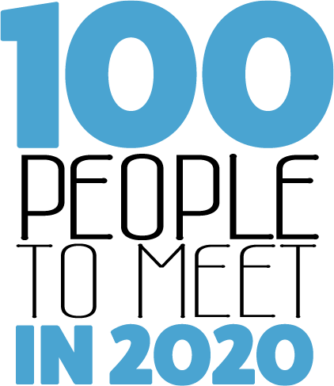 Whether promoting history and the arts, building community or providing vital services, these people make Virginia a better place through their passion and vision.
Whether promoting history and the arts, building community or providing vital services, these people make Virginia a better place through their passion and vision.
Ed Beardsley, Founder and president, SPARC; owner, The Plaid Turnip restaurant, Suffolk

Ed Beardsley’s popular Suffolk restaurant, the Plaid Turnip, will celebrate its 10th anniversary in 2020, and he’s planning a second, Art’s Kitchen, within the Suffolk Center for Cultural Arts. “There’s a third concept on the drawing board, too,” he teases. The entrepreneur’s main focus, however, is guiding SPARC, a nonprofit arts organization he founded to revitalize the heart of Suffolk (not to be confused with the unrelated Richmond performing arts school of the same name). Beardsley wants Suffolk City Council to declare the downtown area an arts and cultural district: “This will create the opportunity for large-scale public art projects which will foster excitement and a sense of identity to downtown.” •
John Allen, CEO, Elite Meet, Virginia Beach
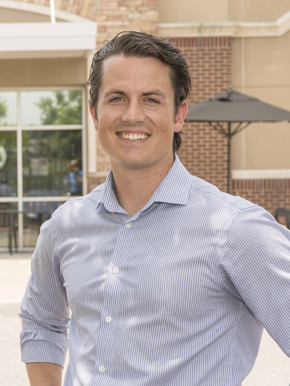
John Allen has formed two new ventures that grew out of his success using social media to raise funds for Elite Meet, a nonprofit he co-founded that helps fighter pilots and special ops veterans find civilian jobs. The feedback he received about the way he told his story as a former Navy SEAL drew so many queries that he formed NachoMedia, a boutique firm that helps others craft authentic, yet vulnerable narratives that are “not macho.” Likewise, questions on how to become a SEAL led to a mentorship side business called Operators Association, which offers advice for aspiring SEALS, Green Berets or Rangers, as well as merchandise sales. •
Julia Boas, Events director, Roanoke Outside Foundation, Roanoke

If Richmond has “America’s Friendliest Marathon,” Roanoke can claim the nation’s toughest: The Foot Levelers Blue Ridge Marathon offers more than 7,000 feet in elevation changes. Julia Boas has organized the April race since 2014, and it has become a major financial boon, she says, contributing $5 million to the local economy over the past decade. But more importantly, the marathon has highlighted Roanoke’s downtown and surrounding mountains to “change the narrative of our region,” Boas says. Today, the foundation is involved with a pro cyclocross race and music and beer festivals. Proceeds from the events let the foundation, started by the Roanoke Region Partnership a decade ago, develop trails and improve local parks. •
Jamie Bosket, President and CEO, Virginia Museum of History & Culture, Richmond
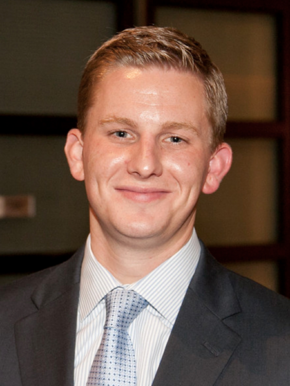
When the 188-year-old Virginia Historical Society reinvented itself as the Virginia Museum of History & Culture last year, it was more than a name change. The 36-year-old Bosket, a New Yorker who previously was vice president for guest experience at George Washington’s Mount Vernon, moved south to shake up one of America’s oldest historical institutions. Since taking the museum’s helm in early 2017, Bosket has declared an agenda to engage all Virginians, including those who were left out in the past. In 2020, the museum will feature exhibits on early female activism in Virginia, rock music on television and the legacy of enslaved cooks. “I am committed to leading the VMHC into a future that is far more inclusive than its past,” he says. •
Duron Chavis, Manager of community engagement, Lewis Ginter Botanical Garden, Richmond
Duron Chavis is a bit like Richmond’s own Johnny Appleseed. His first official foray into urban gardening was in 2012, when he worked with South Side Richmond residents to build the McDonough Community Garden, which is still active. Today, Chavis leads the Ginter Urban Gardener program to help people develop community gardens across the Richmond region, a project that also helps address food insecurity in low-income neighborhoods. In 2020, Chavis says his focus will continue on the city’s North Side, developing resilient greenspaces, growing healthy food and addressing stormwater management. You also may see Chavis at Richmond’s Happily Natural Day festival, a celebration of African ancestry, health and wellness, which he started in 2003. •
Valerie Cassel Oliver, Curator of modern and contemporary art, Virginia Museum of Fine Arts, Richmond
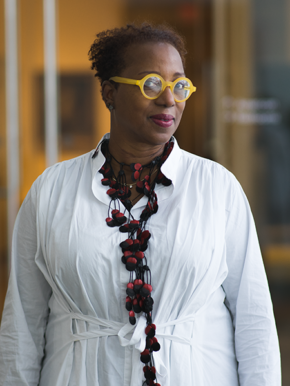
Valerie Cassel Oliver came to the Virginia Museum of Fine Arts in July 2017, working to fuel meaningful conversations and ensure that the VMFA reflects dynamic, innovative, current work that will have staying power. “You’re sort of writing history as it happens, all the time, as a contemporary curator,” Oliver says. “It’s perpetual motion.” A major goal for the museum is to bolster its collection with work by black artists. It did so in a big way in September, when Oliver joined in the Times Square unveiling of “Rumors of War” by celebrated artist Kehinde Wiley. The work is an equestrian statue with a modern, young black person at the reins, a cultural twist on Richmond’s Confederate statues on Monument Avenue. When the statue is installed in its permanent home this month in front of the museum on the newly named Arthur Ashe Boulevard, it will be a certain conversation starter. •
Debbie Irwin, Executive director, Staunton Creative Community Fund, Staunton
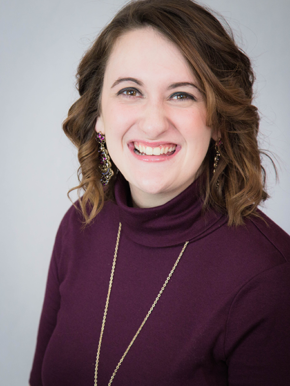
Since 2008, the nonprofit Staunton Creative Community Fund has been an invaluable resource for small businesses, aiding area entrepreneurs with initial funding, workforce training and access. Under Debbie Irwin’s leadership, the fund is fully invested in the new Shenandoah Valley Innovation Roadmap, which helps new thinkers market products and services, and she’s got big plans in store, although details are currently under wraps. “In partnership with several other organizations, we are building a regionwide acceleration program,” Irwin says. “One that is different than the [kinds] we have seen in the state so far.” •
Allyson Rothrock, President, The Harvest Foundation, Martinsville
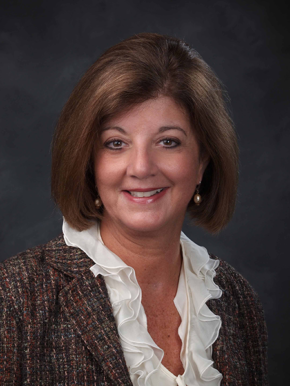
In 2002, Memorial Hospital was sold in Martinsville, and the Harvest Foundation was started with the proceeds to address local health, education and community concerns. Allyson Rothrock has been with the foundation from its start, and she faces a big year: the opening of the Clinical Simulation Lab at the Martinsville campus of Sovah Health and two programs providing child care and affordable housing. Also, after a survey of more than 2,500 parents in Martinsville and Henry County, the foundation is creating a plan for an early-education system. •
Travis Staton, President and CEO, United Way of Southwest Virginia, Abingdon
Travis Staton is a native of Southwest Virginia, the region whose vitality is the focus of his life’s work. As head of the United Way, he led a shift in the organization’s role to a more regional approach through eight mergers, and now oversees the nonprofit’s operations for nearly 20% of the state. He’s responsible for an initiative called Ignite that focuses on a cradle-to-career continuum to build a talent pipeline from schools to the workforce. In 2018, Charity Navigator ranked his organization among the 10 best United Way chapters of more than 1,100 nationwide and in October, it became one of 6,000 nonprofits across the globe to reach GuideStar’s Platinum level for its commitment to transparency. •
Teresa Owens Tyson, Executive director, The Health Wagon, Wise
Teresa Owens Tyson has devoted much of her life to bringing assistance to the medically underserved in 11 Southwest Virginia cities and counties, running a group of mobile and stationary free and Medicaid clinics. She was also integral in bringing the annual Remote Area Medical (RAM) free clinic to Wise in 1999. Next July, it will be run by Health Wagon as the Move Mountains Medical Mission. Her work has been recognized by, among others, the United Nations, the Virginia Nurses Association and former President George H.W. Bush, who honored her with one of his “Daily Point of Light” awards in 2014. •

















